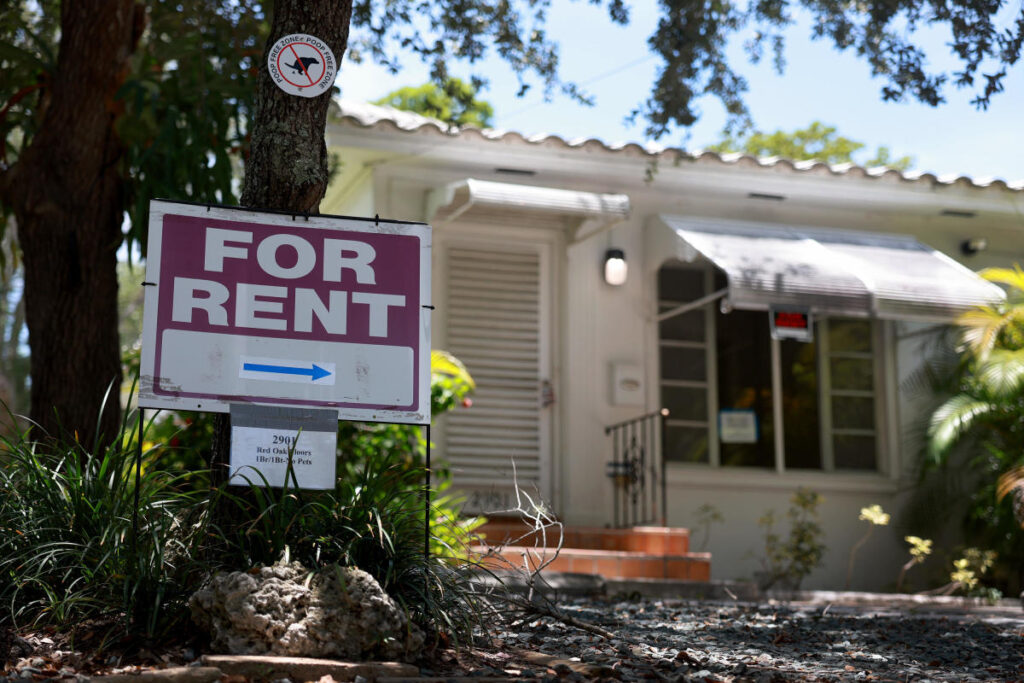After years of steeply rising housing costs, recent developments suggest that renters might finally have reason to celebrate. The latest Consumer Price Index (CPI) report reveals a notable easing in inflation within the rental market, potentially offering much-needed financial relief to millions of Americans. This shift is particularly significant given that rental costs have been a major contributor to overall inflation in recent years.
Easing Inflation and Its Implications for Renters
Stephen Brown, an economist at Capital Economics, highlights that rent has been a key factor in keeping inflation rates high. According to the Bureau of Labor Statistics, the CPI measure of shelter inflation peaked at 8.3% in early 2023 but has since fallen to 5.2% in recent months. This reduction in shelter inflation signals a positive change in overall inflation trends, with Capital Economics projecting that annualized rent growth could decline to slightly below 3% by the end of 2025. This cooling in rent prices mirrors a broader easing of inflationary pressures that have impacted household budgets since 2022.
As inflation slows, renters are not expected to experience significant rent increases in the immediate future. Although rent prices may fluctuate slightly, the overall trend is anticipated to remain stable. A key factor contributing to this stability is the surge in housing supply resulting from a significant construction boom, particularly in Southern and Sun Belt states. Cities like Austin, Dallas, Miami, and Phoenix have seen a substantial increase in new housing units, which has made it more challenging for landlords to raise rents significantly.
Thomas Ryan, an economist at Capital Economics, explains that the pandemic exposed the critical shortage of housing, prompting a robust building boom. However, many of these new units are still under construction or awaiting occupancy. Chen Zhao from Redfin adds that the substantial number of upcoming housing units means that landlords will likely prioritize filling these vacancies before implementing any major rent increases.
Current Market Conditions and What Renters Can Expect
In today’s market, renters have the advantage. They may find more favorable rental deals, especially if they engage in direct negotiations with landlords. This trend is expected to continue, giving renters more leverage in securing advantageous rental terms.
For those with existing leases, rent increases upon renewal are expected to be more moderate compared to the dramatic hikes observed during the pandemic. Rent hikes are anticipated to align more closely with overall inflation rates, potentially remaining in the single digits. This marks a significant departure from the 10% or even 20% increases that were common in the past.
Impact on Federal Reserve Policy
The reduction in housing costs is not only beneficial for renters but also has broader economic implications. Shelter costs account for over one-third of the CPI, making them a major component in inflation measurements. The decline in shelter inflation is a positive indicator for the overall economy and could influence Federal Reserve policy decisions.
Redfin’s Zhao suggests that the easing of shelter inflation strengthens the case for a potential interest rate cut by the Federal Reserve. The Federal Reserve has maintained its benchmark interest rate at 5.25% to 5.50% since March 2020, at the onset of the pandemic. With the cooling housing market, the Fed may be more inclined to reduce interest rates. Capital Economics forecasts that the Fed will lower its benchmark rate to between 3.5% and 3.75% by the end of next year, with potential rate cuts in September and December. However, political developments and other economic factors could influence these projections.
Conclusion
Overall, the easing of rental inflation provides a glimmer of hope for renters who have faced significant cost increases in recent years. With a slowing inflation rate, increased housing supply, and improved negotiating power for renters, the rental market is poised to become more favorable in the near term. Additionally, the positive shift in shelter inflation supports broader economic stability and could play a crucial role in shaping Federal Reserve policies aimed at fostering a balanced economic recovery. This combination of factors underscores a potentially brighter outlook for renters, offering a much-needed reprieve from the soaring housing costs that have dominated recent years.
